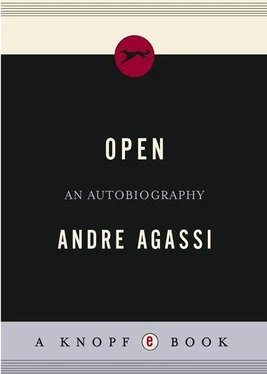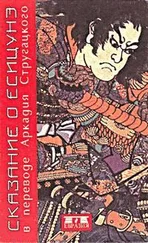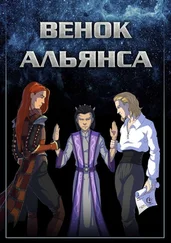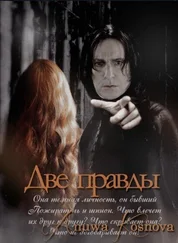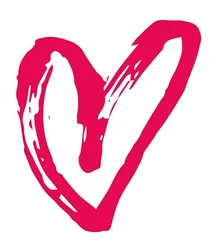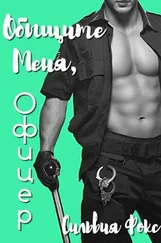Unknown - i a3f9967826fa0ec9
Здесь есть возможность читать онлайн «Unknown - i a3f9967826fa0ec9» весь текст электронной книги совершенно бесплатно (целиком полную версию без сокращений). В некоторых случаях можно слушать аудио, скачать через торрент в формате fb2 и присутствует краткое содержание. Жанр: Старинная литература, на английском языке. Описание произведения, (предисловие) а так же отзывы посетителей доступны на портале библиотеки ЛибКат.
- Название:i a3f9967826fa0ec9
- Автор:
- Жанр:
- Год:неизвестен
- ISBN:нет данных
- Рейтинг книги:5 / 5. Голосов: 1
-
Избранное:Добавить в избранное
- Отзывы:
-
Ваша оценка:
- 100
- 1
- 2
- 3
- 4
- 5
i a3f9967826fa0ec9: краткое содержание, описание и аннотация
Предлагаем к чтению аннотацию, описание, краткое содержание или предисловие (зависит от того, что написал сам автор книги «i a3f9967826fa0ec9»). Если вы не нашли необходимую информацию о книге — напишите в комментариях, мы постараемся отыскать её.
i a3f9967826fa0ec9 — читать онлайн бесплатно полную книгу (весь текст) целиком
Ниже представлен текст книги, разбитый по страницам. Система сохранения места последней прочитанной страницы, позволяет с удобством читать онлайн бесплатно книгу «i a3f9967826fa0ec9», без необходимости каждый раз заново искать на чём Вы остановились. Поставьте закладку, и сможете в любой момент перейти на страницу, на которой закончили чтение.
Интервал:
Закладка:
It’s April 29, 1986. My sixteenth birthday.
In disbelief, all day long, I tell myself: You’re a professional tennis player now. That’s what you are. That’s who you are. No matter how many times I say it, it just doesn’t sound right.
The one unequivocally good thing about my decision to turn pro is that my father sends Philly on the road with me full-time, to help with the minutiae, the endless details and arrangements of being a pro, from renting cars to reserving hotel rooms to stringing rackets.
You need him, my father says. But all three of us know that Philly and I need each other.
The day after I turn pro, Philly gets a call from Nike. They want to meet with me about an endorsement deal. Philly and I meet the Nike man in Newport Beach, at a restaurant called the Rusty Pelican. His name is Ian Hamilton.
I call him Mr. Hamilton, but he says I should call him Ian. He smiles in a way that makes me trust him instantly. Philly, however, remains wary.
Boys, Ian says, I think Andre has a very bright future.
Thank you.
I’d like Nike to be a part of that future, to be a partner in that future.
Thank you.
I’d like to offer you a two-year contract.
Thank you.
During which time Nike will provide all your gear, and pay you $20,000.
For both years?
For each year.
Ah.
Philly jumps in. What would Andre have to do in exchange for this money?
Ian looks confused. Well, he says. Andre would have to do what Andre has been doing, son. Keep being Andre. And wear Nike stuff.
Philly and I look at each other, two Vegas kids who still think they know how to bluff. But our poker faces are long gone. We left them back at Sizzler. We can’t believe this is happening, and we can’t pretend to feel otherwise. At least Philly still has the presence of mind to ask Ian if we may be excused. We need a few moments in private to discuss his offer.
We speed-walk to the back of the Rusty Pelican and dial my father from the pay phone.
Pops, I whisper, Philly and I are here with the guy from Nike and he’s offering me $20,000.
What do you think?
Ask for more money.
Really?
More money! More money!
He hangs up. Philly and I rehearse what we’re going to say. I play me, he plays Ian. Men passing us on their way in and out of the men’s room think we’re doing a skit. At last we walk casually back to the table. Philly spells out our counteroffer. More money. He looks grave. He looks, I can’t help but notice, like my father.
OK, Ian says. I think we can manage that. I have the budget for $25,000 for the second year. Deal?
We shake his hand. Then we all walk out of the Rusty Pelican. Philly and I wait for Ian to drive off before jumping up and down, singing We’re in the Money.
Can you believe this is happening?
No, Philly says. Honestly? No, I can’t.
Can I drive back to L.A.?
No. Your hands are shaking. You’ll plow us straight into a median, and we can’t have that.
You’re worth twenty grand, bro!
And twenty-five next year.
All the way back to Philly’s place, item one on our agenda is what model of cool but cheap car we’re going to buy. The main thing is to buy a car with a tailpipe that doesn’t blow black clouds. Pulling up to Sizzler in a car that doesn’t smoke—now that would be the height of lux-ury.
MY FIRST TOURNAMENT as a pro is in Schenectady, New York. I reach the final of the $100,000 tournament, then lose to Ramesh Krishnan, 6–2, 6–3. I don’t feel bad, however.
Krishnan is great, better than his ranking of forty-something, and I’m an unknown teenager, playing in the final of a fairly important tournament. It’s that ultimate rarity—a painless loss. I feel nothing but pride. In fact, I feel a trace of hope, because I know I could have played better, and I know Krishnan knows.
Next I travel to Stratton Mountain, Vermont, where I beat Tim Mayotte, who’s ranked number twelve. In the quarterfinal I play John McEnroe, which feels like playing John Lennon. The man is a legend. I’ve grown up watching him, admiring him, though I’ve often rooted against him, because his archrival, Borg, was my idol. I’d love to beat Mac, but this is his first tournament after a brief hiatus. He’s well rested, raring to go, and he was recently ranked number one in the world. Moments before we take the court I wonder why a player as polished and accomplished as Mac needs a hiatus. Then he shows me. He demonstrates the virtue of rest.
He beats me soundly, 6–3, 6–3. During the loss, however, I manage to hit one atomic winner, a forehand return of Mac’s serve that explodes past him. At the post-match news conference, Mac announces to reporters: I’ve played Becker, Connors, and Lendl, and no one ever hit a return that hard at me. I never even saw the ball.
This one quote, this ringing endorsement of my game from a player of Mac’s status, puts me on the national map. Newspapers write about me. Fans write to me. Philly suddenly finds himself deluged with requests for interviews. He giggles every time he fields another.
Nice to be popular, he says.
My ranking, meanwhile, keeps pace with my popularity.
I GO TO MY FIRST U.S. OPEN in the late summer of 1986, feeling eager for the step up in competition. Then I see the New York skyline from the airplane window and my eagerness evaporates. It’s a beautiful sight, but intimidating for someone who grew up in the desert. So many people. So many dreams.
So many opinions.
Up close, at street level, New York is less intimidating than irritating. The nasty smells, the ear-splitting sounds—and the tipping. Raised in a house that depended on tips, I believe in tips, but in New York the tip takes on a brand new dimension. It costs me a hundred dollars just to get from the airport to my hotel room. By the time I’ve greased the palm of the cabbie, the doorman, the bellhop, and the concierge, I’m tapped out.
Also, I’m late for everything. I continually underestimate the time it takes to travel in New York from Point A to Point B. One day, right before the start of the tournament, I’m due to practice at two o’clock. I leave my hotel in what I think is plenty of time to reach the arena in Flushing Meadows. I board a charter bus outside the hotel, and by the time we navigate the midtown gridlock and cross the Triborough I’m horribly late. A woman tells me they’ve given away my court.
I stand before her, pleading for another practice time.
Who are you?
I show her my credentials, flash a weak smile.
Behind her is a chalkboard, covered with a sea of players’ names, which she consults skeptically. I think of Mrs. G. She runs her fingers up and down the left column.
OK, she says. Four o’clock, Court 8.
I peer at the name of the player I’ll be practicing with.
I’m sorry. I can’t practice with that guy. I’m possibly going to play that guy in the second round.
She consults the chalkboard again, sighing, annoyed, and now I wonder if Mrs. G has a long-lost sister. At least I’m no longer rocking a mohawk, which would make me even more offensive to this woman. On the other hand, my current hairstyle is only slightly less outrageous. A fluffy, spiky, two-toned mullet, with black roots and frosted tips.
OK, she says. Court 17, five o’clock. But you’ll have to share with three other guys.
I tell Nick: It feels as if I’m in over my head in this town.
Nah, he says. You’ll be fine.
The whole place looks a lot better from a distance.
What doesn’t?
In the first round I face Jeremy Bates, from Great Britain. We’re on a back court, far from the crowds and the main action. I’m excited. I’m proud. Then I’m terrified. I feel as if it’s the final Sunday of the tournament. My butterflies are flying in tight formation.
Читать дальшеИнтервал:
Закладка:
Похожие книги на «i a3f9967826fa0ec9»
Представляем Вашему вниманию похожие книги на «i a3f9967826fa0ec9» списком для выбора. Мы отобрали схожую по названию и смыслу литературу в надежде предоставить читателям больше вариантов отыскать новые, интересные, ещё непрочитанные произведения.
Обсуждение, отзывы о книге «i a3f9967826fa0ec9» и просто собственные мнения читателей. Оставьте ваши комментарии, напишите, что Вы думаете о произведении, его смысле или главных героях. Укажите что конкретно понравилось, а что нет, и почему Вы так считаете.
